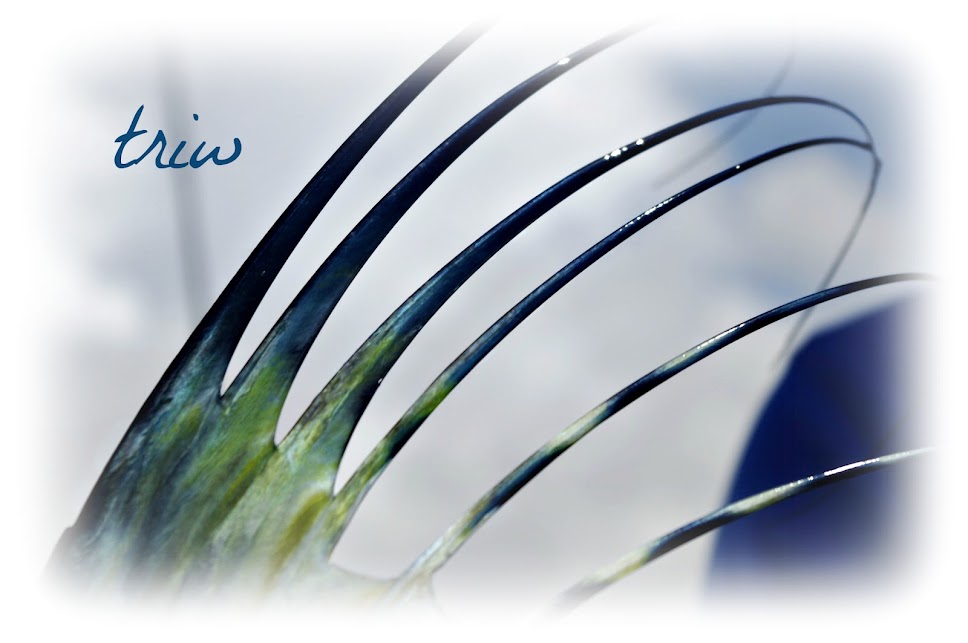I haven't had a bend in the rod since Cabo in late July. Coastal east Africa still doesn't feel like home. The past three years in the Caribbean afforded me instant access to tarpon and bonefish, and while I made a conscious effort to not ever take that for granted (I think I succeeded), it didn't make not having it any easier.
I had high hopes for my first time on the water here, even though I knew I didn't stand a very good chance of catching anything. I was fishing the Rufiji on a meandering floodplain and Tigerfish like cooler, faster and cleaner water usually found far upstream. Those places are all locked down within hunting concessions, usually owned by extremely wealthy non-Africans. There is no such thing as DIY, and you've got to have a between 4 and 7 thousand bucks to blow for a week's access to those waterways. Just slightly out of league...
Nonetheless, we shoved off with high hopes. Our armed boat captain took us to a mid-river sandbank and tied off on a snag. He said tigers had been caught from the small rapid sweeping around the bank. Just as we tied off, a hippo exited the water on the opposite side of the sand spit and began to walk towards the water we wanted to fish.
They kill more people in Africa than any other animal, and are justifiably given a very wide berth. The hippo stopped in mid saunter and stared directly at us. We wouldn't have had much time to get the hell outta dodge if he decided he didn't want us to be there. We yielded and moved further upstream.
We tied up at a mid-river snag and I swung big clousers through some promising-looking water with nary a tug. Again, hippos began to move a bit too close for comfort and we were forced to move.
This time, we had to get by a group of the creatures to move to the next spot. Each group is essentially one dominant male's harem. If anything gets too close, the male breaks off to smash some heads.
Our boat was chased twice by the same male. Once on the way up, and again on the way back. They submerge and gallop along the river bottom, pushing a bow wave as they run towards where they last saw the boat. Thankfully, when the thing surfaces and bellows and shakes his tyrannosaur head and exhales like a whale, we've moved just out of range. These things are no joke. Guides in AK have to watch for grizzlies, but bears usually aren't openly hostile to the mere presence of human beings.
We eventually came to the best looking water of the day. A big sweeping tailout just downstream of a chokepoint. We beached the boat and the captain took his rifle to sit up on the bank. We were just downstream from a village of perhaps 70 people. I stood on the banks of the river and bombed big streamers through the water column while watching for crocs. I was assured that the shallow shelf extending offshore for 15ft or so would not let a croc approach unseen, but those are just words.
I tried about a dozen flies. Twice, I buried the hook into a log on the strip set thinking I was into a fish, but it was not to be. I'd have to wait even longer to catch a tiger. Eventually, it will happen.
Visible flecks of gold peppered the lapping shores of the river, hinting at the resources that first brought Arabs and then Europeans to this area hundreds of years ago. The largest gold, timber and slave trading hub in East Africa was the village of Kilwa, 1000 years old, and our destination when we left the Selous Game Reserve on a Tuesday morning. Not coincidentally, Kilwa was also one of the blue water sportfishing hubs of East Africa. My focus shifted from toothy tigers to GTs blowing up poppers. The possibilities were consolation enough for the uncooperative tigerfish of the Rufiji.











1 comment:
Nice adventure..keep going..the glory is out there for you to claim!
Post a Comment